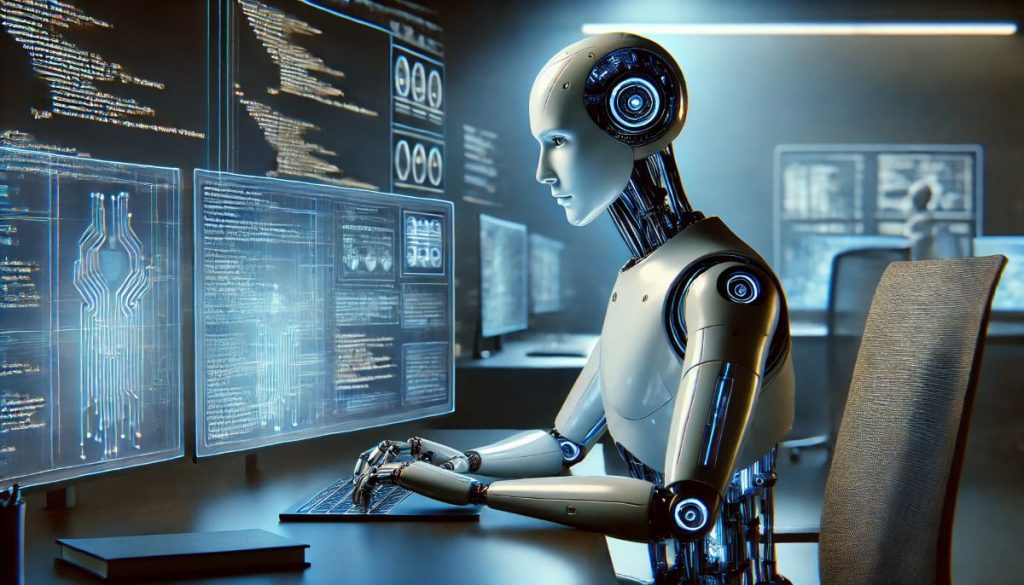Supply chains are facing constant volatility, from geopolitical shifts to pricing disruptions. In this environment, the ability to quickly and effectively negotiate supplier contracts has never been more critical. Yet, traditional procurement negotiations remain slow, resource-intensive, and prone to inefficiencies.
Autonomous negotiation—driven by AI-powered agents—is emerging as a transformative force in supply chain strategy. Companies are now leveraging AI to accelerate deal-making, optimize pricing agreements, and ensure supplier compliance at scale. Unlike human negotiators, AI systems can process vast amounts of market data in real time, identify optimal contract terms, and execute agreements with unmatched speed and precision.
Why AI is Changing the Procurement Game
Procurement teams today operate under immense pressure. Cost control, supplier performance, and risk mitigation are just a few of the challenges they juggle. The rise of autonomous negotiation offers a compelling solution: AI-driven systems that negotiate on behalf of organizations, reducing the burden on human teams and delivering data-driven outcomes.
Traditional negotiation methods often involve weeks or months of back-and-forth discussions, with human negotiators limited by bandwidth, cognitive biases, and a narrow dataset. Autonomous negotiation platforms, however, can simultaneously manage thousands of vendor discussions, instantly analyzing pricing trends, supplier behavior, and contract history to create optimal deal structures.
Leading enterprises have already implemented AI-driven negotiation systems to manage procurement at scale. For instance, a multinational retailer used autonomous agents to renegotiate thousands of supplier contracts, ensuring pricing adjustments in response to fluctuating raw material costs. In manufacturing, AI-assisted negotiation tools optimize maintenance agreements and supplier terms, eliminating inefficiencies and securing better pricing.
Beyond Speed: The Strategic Benefits of AI Negotiation
While speed and efficiency are key advantages, AI-driven negotiation offers deeper strategic benefits. AI systems continuously refine their negotiation techniques by learning from past interactions, improving accuracy and effectiveness over time. Data-driven insights enable organizations to forecast supplier risks, anticipate pricing fluctuations, and align procurement decisions with long-term business goals.
Another advantage is AI’s ability to reduce bias in negotiations. Human negotiators—intentionally or not—bring biases to the table, potentially influencing deal outcomes. AI eliminates subjective influences, ensuring negotiations remain objective, transparent, and based solely on data. This fosters greater trust between buyers and suppliers, leading to stronger long-term partnerships.
The Role of Humans in AI-Driven Negotiations
Despite its advantages, autonomous negotiation is not about replacing human expertise but augmenting it. AI excels at handling routine, high-volume transactions, freeing procurement professionals to focus on complex, high-value negotiations that require strategic decision-making and relationship management.
The most effective procurement teams are integrating AI into their workflows, allowing AI to manage contract renewals, pricing adjustments, and standard terms while humans oversee major supplier agreements and long-term partnerships. This hybrid approach creates a more agile, resilient procurement function that can quickly adapt to market disruptions.
The Future of Procurement is Here
The adoption of AI-driven negotiation is no longer a futuristic concept—it’s a present reality for forward-thinking businesses. As supply chains become increasingly complex, organizations that embrace autonomous negotiation will gain a competitive edge, optimizing costs while ensuring procurement remains a strategic driver of business success.
Companies that fail to adopt AI-powered negotiation risk falling behind as competitors streamline procurement, secure better deals, and enhance supplier relationships through data-driven decision-making. The future belongs to those who can blend automation with human expertise, leveraging AI to navigate uncertainty and drive supply chain efficiency.







